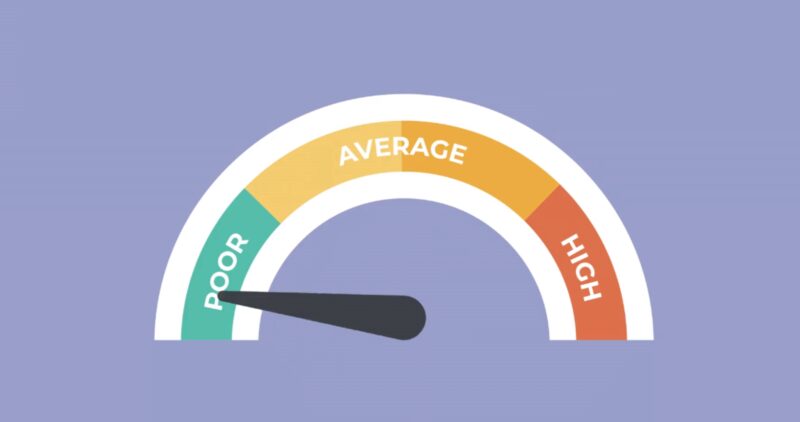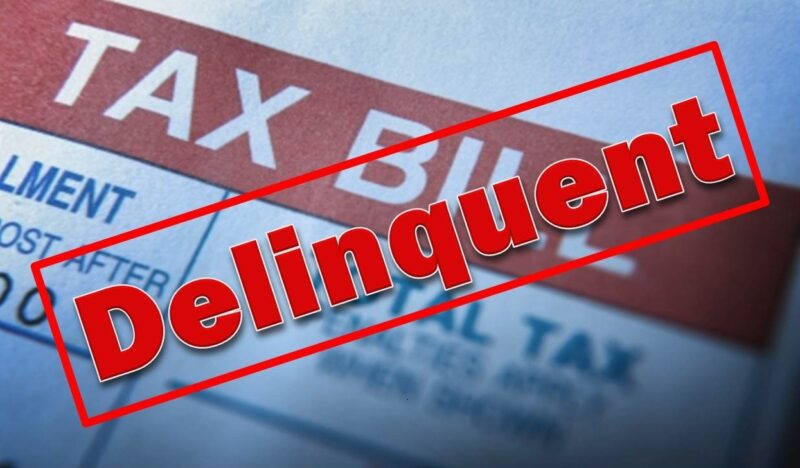Property taxes are an essential aspect of home ownership that can’t be ignored. Unfortunately, there may be times when financial hardship or oversight makes it challenging to pay these taxes on time.
If you find yourself in such a situation, you might be wondering, “How long can I be delinquent on my property taxes before facing serious consequences?” In this blog post, we’ll take a clear look at the timeline you’re up against, the ramifications you may face, and the available options to remedy the situation.
The Timeline for Delinquent Property Taxes

The timeline for delinquent property taxes is one of the first things you should be aware of when you miss a payment. In most cases, a series of events unfold after your property taxes become overdue, and understanding this timeline can help you better manage the situation.
Initial Grace Period
Most jurisdictions offer a grace period after the payment due date. This is a short amount of time, typically ranging from a few days to a month, during which you can pay the taxes without incurring additional fees or penalties. Make sure to check the specific rules in your jurisdiction, as the length of the grace period can vary.
Late Fees and Interest
Once the grace period is over, late fees and interest start accruing on the unpaid amount. These additional costs can add up quickly, making it even more difficult to pay off your debt. Interest rates can be quite high, often between 12% to 18% per annum. Some places also charge a flat late fee in addition to the interest.
Notices and Liens
After a certain period of time, generally a few months, the taxing authority will send out notices informing you of your delinquency. If the taxes remain unpaid, the local government may place a tax lien on your property. A tax lien is a legal claim against your property, and it can create a host of problems, including difficulty in selling the home or refinancing your mortgage.
Consequences of Being Delinquent
Going delinquent on your property taxes isn’t something to be taken lightly. The repercussions can be severe and long-lasting. Below are some of the major outcomes you might face if you let your property taxes go unpaid.
Damage to Credit Score

Your credit score can take a hit if you don’t pay your property taxes. While property taxes themselves don’t usually appear on your credit report, any liens placed against your property will. These liens are considered a serious negative mark and can significantly lower your credit score.
Risk of Foreclosure
Perhaps the most dire consequence of not paying your property taxes is the risk of losing your home to foreclosure. If you fail to pay your taxes even after the lien has been placed, the government can choose to sell the lien to a third party.
If that happens, the third party can initiate a foreclosure on your property to recover the money.
Legal and Administrative Issues
Aside from losing your home, there can be various legal and administrative problems. For instance, you might have difficulty refinancing your mortgage, and selling your property can become complicated.
Moreover, even if you manage to pay off your debt, getting a tax lien removed can be a complex process that often requires legal assistance.
How to Get Back on Track
Falling behind on property taxes is stressful, but it’s also important to know that you have options for resolving the situation. The earlier you act, the easier it will be to mitigate the negative impacts.
Contact the Taxing Authority

Your first step should be to contact the local taxing authority to discuss your situation. They may be able to offer you a payment plan or provide information about hardship programs for which you might qualify.
It’s always better to communicate with them openly rather than ignoring the problem and hoping it goes away.
Consider Taking Out a Loan

If you’re unable to pay the full amount at once, consider taking out a loan to cover the taxes. While this may seem counterintuitive, paying off the property tax debt can stop the accrual of hefty late fees and interest and may be cheaper in the long run than letting the debt pile up.
However, make sure to weigh the pros and cons, including the interest rate on the loan, before going down this path.
Consult a Professional
Financial advisors or tax professionals can provide valuable insights into your specific situation. They can help you explore various options, such as loans, refinancing, or even selling the property if necessary.
A professional’s guidance can be incredibly beneficial in navigating the complexities of tax law and coming up with a viable solution.
A Case Study: Jane’s Story
Real-life stories often offer the most relatable insights. Let’s look at a case study of Jane, a homeowner who found herself delinquent on her property taxes.
The Scenario
Jane had always been punctual with her property taxes. However, a sudden medical emergency led to financial hardship, making it difficult to meet her obligations.
The taxing authority granted her a short grace period, but Jane was unable to pay by the new deadline.
The Consequences
Late fees and interest started accumulating on Jane’s account. After a few months, she received a notice about her delinquency. Eventually, a lien was placed on her property. Jane’s credit score suffered, and the stress began affecting her health.
The Solution
Jane reached out to her local taxing authority to discuss her options. She also consulted a financial advisor, who suggested she take out a low-interest personal loan to pay off her debt and stop the accrual of late fees and interest.
The loan payments were manageable, and the interest was significantly lower than the accumulating penalties on her tax debt. With this strategy, Jane was able to get back on track and save her property from foreclosure.
FAQs
What is a Tax Certificate Sale?
A tax certificate sale is a public auction where investors purchase a tax certificate by paying off a homeowner’s delinquent property taxes.
The investor then receives a certificate that can eventually be used to initiate foreclosure if the homeowner doesn’t repay the investor with interest within a specified period.
Can Bankruptcy Discharge Property Taxes?
Filing for bankruptcy may provide temporary relief from collection activities, but it generally cannot discharge past-due property taxes.
In a Chapter 13 bankruptcy, you can include delinquent property taxes in your repayment plan, but they must be paid in full over the term of the plan.
Can Property Taxes be Deducted from Income Taxes?
In the United States, property taxes are generally deductible on your federal income tax return, up to a limit, if you itemize deductions.
However, this does not apply to delinquent taxes or penalties—only the amount that is actually due for the tax year in question.
Do Rental Property Owners Face the Same Consequences for Delinquency?
Yes, rental property owners face similar consequences for tax delinquency as homeowners. These can include late fees, interest charges, liens, and eventually the risk of foreclosure.
Rental property owners should also consider that tax delinquency can impact their ability to attract tenants.
Can a Lender Pay My Property Taxes If I Have a Mortgage?
Some mortgage agreements include escrow arrangements where the lender collects funds to pay property taxes and insurance. If you have such an agreement and fall behind on your mortgage payments, the lender may still opt to pay the property tax to avoid a tax lien, but you’ll still be responsible for repaying the lender.
What Happens if I Inherit a Property with Delinquent Property Taxes?
If you inherit a property that has delinquent property taxes, you also inherit the tax liability. You’ll be responsible for paying any back taxes, late fees, and interest charges, and the property could be subject to foreclosure if the taxes remain unpaid.
Final Words
Navigating the maze of property taxes, especially when you’re delinquent, is neither easy nor pleasant. The timelines can be strict, and the consequences severe. However, as bleak as the situation may seem, options exist for mitigating the damage and moving forward.
- Be Proactive: The worst thing you can do is ignore the problem. Reach out to your local taxing authority to discuss your situation as soon as possible.
- Seek Professional Advice: Financial experts and tax advisors can offer invaluable assistance, helping you understand your options and formulate a plan.
- Act Quickly: The faster you take steps to resolve the issue, the better your chances of minimizing the financial and legal repercussions.
Property tax delinquency is a stressful issue to grapple with, but knowledge is power. Knowing the timeline, understanding the consequences, and taking timely action can go a long way in solving the problem. Remember, you’re not alone, and help is available. Take that first step today to get your financial house back in order.
